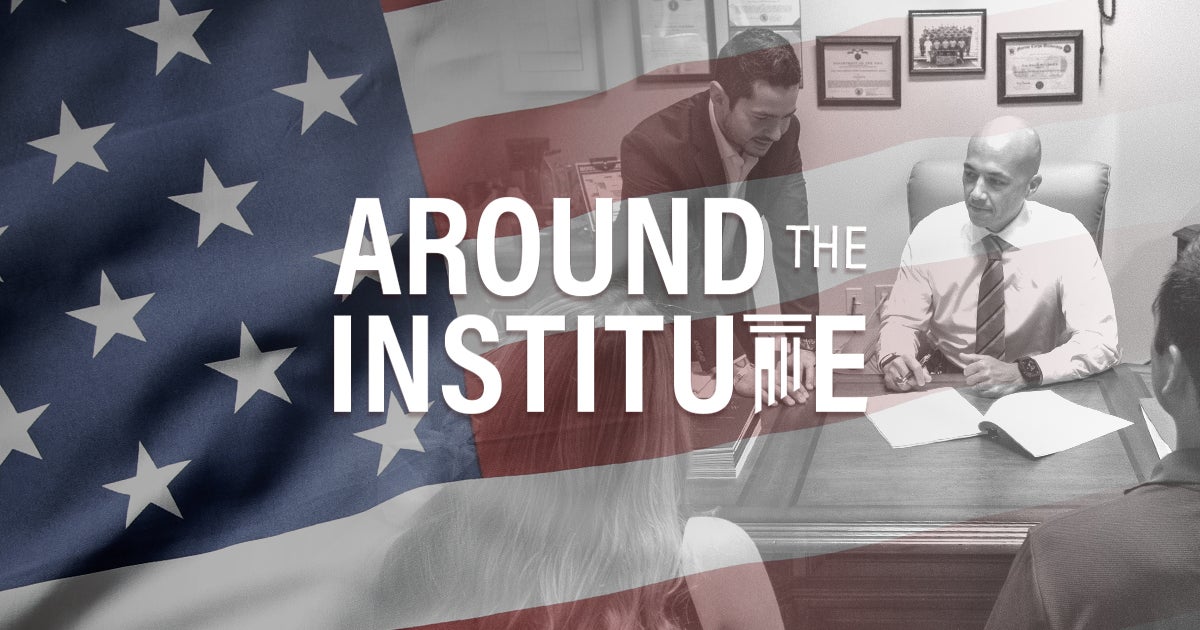
A weekly roundup of important headlines and exciting things happening at First Liberty.
First Liberty Asks Oregon Court of Appeals to Bring Sweet Cakes Case to a Close
This week, we filed a brief in our Sweet Cakes by Melissa case involving Oregon business owners Aaron and Melissa Klein. We’re asking Oregon Court of Appeals to bring the case to a close and issue a final decision in favor of the Kleins. This includes returning the monetary damages imposed against the Kleins.
The Oregon Bureau of Labor and Industries originally imposed a devastating $135,000 damage award against the Kleins after they declined to create a custom cake celebrating a same-sex wedding. Earlier this year, the U.S. Supreme Court issued a favorable order for the Kleins, throwing out a lower court decision that forced Aaron and Melissa out of business by penalizing them for refusing to create a government-approved message that was in conflict with their religious beliefs. The Supreme Court sent the case back to the lower courts for reconsideration.
We argue that the Supreme Court’s recent decision protecting a wedding website designer protects Aaron and Melissa’s constitutional rights as well. Our brief explains:
“The U.S. Supreme Court has now twice vacated this Court’s judgments and remanded on First Amendment grounds but has not yet addressed the merits of those claims. This case has been ongoing for over a decade. It is past time for this dispute to end with a recognition that BOLI’s actions violated the Kleins’ First Amendment rights.”
The Supreme Court has clearly spoken. Government agencies like Oregon’s Bureau of Labor and Industries cannot compel creative professionals to send messages with which they disagree. After more than ten years and two trips to the U.S. Supreme Court, it is time for the Oregon appellate court to grant the Kleins a full victory.
South Carolina School Board Wrongly Told to Stop Opening Meetings in Prayer
We recently sent a letter to the Dorchester School District in Summerville, SC. According to the school board agendas, each meeting begins with a scheduled prayer.
Earlier this month, an anti-religion organization sent a letter to the district complaining and telling board members to immediately stop the prayers. Unsurprisingly, that complaint failed to explain in full what the law actually says about invocations.
Our attorneys made clear that invocations have repeatedly been upheld as constitutional:
“Regarding legislative prayer, the Supreme Court found that the ‘opening of sessions of legislative and other deliberative public bodies with prayer is deeply embedded in the history and tradition of this country. From colonial times through the founding of the Republic and ever since, the practice of legislative prayer has coexisted with the principles of disestablishment and religious freedom.’”
We encouraged the school district not to allow the baseless complaint to intimidate it in any way. We also offered to help the board evaluate its current invocation before making any decisions.
The Christian Post: SC school board urged to allow prayer at meetings despite atheist group’s complaint.